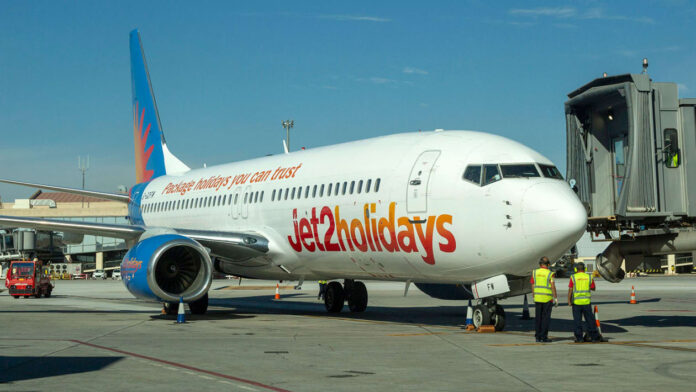Reading the news at the moment, you might think that the travel sector is facing the perfect storm. But the numbers tell a different story: travel organisation ABTA notes that travel bookings for this year are already approaching pre-pandemic levels.
In 2020, spending in the travel and tourism sector crashed by 70% globally, inflicting estimated losses of $4.5trn and costing 62 million jobs.
International travel has been recovering in fits and starts ever since, and there have been several false dawns along the way, catching out any investors who were brave (or foolish) enough to try to pick the bottom.
As the travel and tourism sector tends to be seasonal, having a strong balance sheet and access to additional liquidity is vital. Most operators tend to lose money over the winter season, relying on a strong summer season to replenish their working capital. This seasonality can cause problems if there are any unforeseen challenges (like, say, a global pandemic or a sudden spike in fuel costs).
Not only do these companies have to deal with uncertain working capital demands, but the sector is also viciously competitive. The list of airlines that have collapsed under the weight of market competition is huge.
One way to beat the competition is to focus on customer service, which is why my preference is for companies that have both robust balance sheets and high customer service ratings.
Which airline shares offer the best bets on a recovery?
Jet2 (LSE: JET2) went out of its way to help its customers when the pandemic struck. A travel refund cancellation survey of more than 77,000 people by MoneySavingExpert.com rated the firm number one for refunds in 2020. Jet2.com was also recognised as the only UK airline to promptly provide refunds without significant backlogs, following a review by the UK Civil Aviation Authority (CAA).
Jet2’s latest trading update shows the way it treated its customers during the depths of the pandemic is already paying dividends.
On-sale seat capacity for this summer is roughly 14% higher than summer 2019 levels. Average load factors (a key metric indicating, basically, how full a company’s planes are) for the summer 2022 season are currently just 2.5% behind summer 2019 at the same point (against a 14% rise in seat capacity). Booking momentum is also accelerating and pricing is “robust.”
Notably, Jet2 also has more than £1bn of cash on its balance sheet to deal with any unforeseen developments.
Wizz: a budget airline with impressive green credentials
Wizz (LSE: WIZZ) also has a cash-rich balance sheet. The low-cost airline reported a cash position of €1.4bn at the end of December 2021, giving it plenty of financial flexibility and room to expand its network further across Europe (net debt totalled €1.8bn at the end of September 2021, 36% of assets).
Wizz is investing heavily in a new, fuel-efficient fleet and pushing down prices for consumers in the process. In the six months to the end of September, the company reported average ticket revenue per customer of €33.10 (compared to €50 to €60 for other low-cost peers). This investment certainly seems to be paying off. In May, it carried 4.1 million customers, a 390% increase year-on-year, while its load factor hit 84.2%. Overall, the airline expects to fly 30% more passengers this year than 2019.
It seems the sky’s the limit for Wizz as it plans to expand its footprint further in the months and years ahead. Last month the low-cost carrier signed an agreement to explore opening routes to Saudi Arabia.
The airline also claims to have the lowest level of CO2 emissions of all its competitors. In a world where consumers are increasingly concerned about their carbon footprint, this could become a competitive edge.
EasyJet: in the news for all the wrong reasons
A company that has been in the news recently for all the wrong reasons is easyJet (LSE: EZJ). The carrier has struggled to meet the explosion in demand for its services over the past few weeks leading to flight cancellations and lengthy delays.
The group will need to get its house in order before the summer period. According to its latest trading update, management is expecting to operate 97% of 2019 capacity in the fourth quarter, up from around 90% in the third quarter. Bookings for the summer period are around 6% higher than 2019 levels.
Based on these numbers, it seems easyJet’s recovery is lagging that of Wizz and Jet2. A high debt load and infighting with its founder, Stelios Haji-Ioannou, may also continue to distract management.
Tui: complex balance sheet increases risks
Tui (LSE: TUI), Europe’s biggest holiday company, had already come under fire for using off-balance sheet structures to hide debt before the pandemic. It was then bailed out not once but four times by the German government. Each cash infusion came with its own set of limitations.
Tui recently announced that it will start to repay the more than €4bn it received in state aid, but this could be a slow process. The group announced the repayment alongside an update showing that summer holidays were already at 80% of those in 2019. Based on these trends, management is expecting trading to return to normal this year.
However, like easyJet, Tui is also in the papers for the wrong reasons. Europe’s largest travel group has been cancelling and rescheduling flights in the UK, causing chaos for travellers.
IAG: staffing issues threaten recovery
British Airways owner IAG (LSE: IAG) came close to collapse during the pandemic. Management pulled out all the stops to keep the airline flying, including selling the corporation’s artwork.
Now it faces a long road to recovery. Even though the FTSE 100 group has a strong hold over the lucrative transatlantic travel route, it is facing huge challenges. It had to cancel 10% of planned flights across the group between March and October because of staff shortages. These have been compounded by IT and customer service issues. Neither of these headwinds looks set to dissipate any time soon.
On top of these factors, the group is carrying debts of €11.6bn, up from €6.4bn a year before the pandemic. That’s not the sort of burden any business wants with interest rates on the up.
The best airline shares to buy for a sector recovery
The travel industry is not out of the woods yet, and there are plenty of headwinds to navigate over the next few quarters, but green shoots are starting to appear. By focusing on their customers, Jet2 and Wizz may be able to pull ahead of their rivals as the market recovers. They also have the financial headroom to navigate any further challenges along the way and take advantage of growth opportunities as they emerge.













